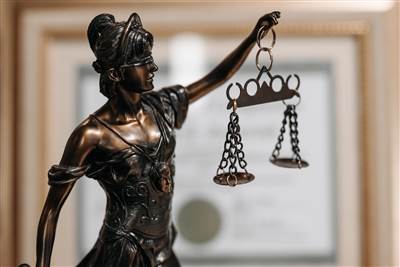1. Ask to speak to your lawyer.
When being arrested, it is important to remain calm and assert your right to speak to legal representation. Requesting to speak to your lawyer before answering any questions is a crucial step as provided by the Fifth Amendment. Having an experienced attorney present can help protect your rights and ensure that any proceedings are carried out appropriately. It is important to remember not to answer any questions before consulting a lawyer and that, although the process may feel daunting, all citizens have the right to receive competent legal representation.
Having a lawyer present or to consult with when being arrested can be invaluable. It is important to have counsel available to review the situation and discuss the details in order to better understand the legal implications of the arrest. A lawyer can make sure that the individual understands their legal rights and can provide advice on the best course of legal action to take. They can also help explain the process and act as a mediator between the individual and law enforcement to ensure that fair process is followed. Furthermore, a lawyer can make sure that the individual is not unfairly treated throughout the process and can represent their interests in court if necessary. Having legal representation present or consulted with when being arrested can help protect an individual's rights, reduce stress associated with the situation, and keep their legal options open.

2. Don’t Resist Arrest.
Whether you feel like you’re innocent or you believe that law enforcement has wrongfully accused you, it’s best to remain calm and obey their commands
Resisting arrest can make a potentially difficult situation worse; it can also result in additional penalties. Remain respectful and be mindful that officers are just doing their job, and cooperate with them. Obeying the command of law enforcement officers is advisable, instead of attempting to resist arrest or fight back. Although you may feel wrongfully accused, arguing or stressing your innocence can cause you to be in more legal and personal trouble. Avoid any situations where you are physically or verbally confrontational with the police.
Not resisting arrest can help you avoid incriminating yourself, as aggressive actions can be perceived as an admission of guilt. It can also help you avoid injuries or additional charges that can stem from resistance or fleeing. Not resisting arrest can also help protect your legal interests as it makes it easier for an attorney to dispute your guilt later.
3. Don’t Talk: Don’t provide any explanations or additional information that can be used against you during trial.
Remaining silent when being arrested is an important step to take in order to ensure that one's legal rights are not impinged upon and that any potential consequences stemming from the arrest are minimized. When an individual is being arrested, it is beneficial that they do not make any type of statement that could potentially be used against them in court. By declining to answer any questions or make any comments while being placed under arrest, the individual is protecting themselves from further entanglement in a legal issue. This allows their attorney to handle any legal disputes that arise from the arrest in a more effective manner. The Miranda Rights should be read to the person being arrested and they should understand that they do not have to make any statement or answer any questions. If you do choose to answer questions, be aware that it will potentially weaken your position and make it easier for the police/prosecution to build their case against you.
When being arrested, it is important to remember that you have the right to remain silent. When asked questions, politely and professionally decline to answer and state that you would like to speak to your attorney. This will ensure your rights are protected and will help give your lawyer the best opportunity to defend you.
4. File a complaint with the local police department if you feel your rights have been violated.
If you feel that your rights have been violated during an arrest, you have the right to file a complaint with the police department responsible. This is a professional process that allows the department to evaluate and address any concerns you may have. It is a valid and important way to ensure that all citizens are treated with fairness and respect. The complaint should include all relevant details of the incident, such as the date, place, officers involved, and any possible witnesses. The department will review all documents you submit and may then launch an investigation. Filing a complaint could be an important step to protect your rights, and you can rely on the police department to thoroughly examine all relevant evidence.
A lawyer can be an invaluable asset when filing a complaint with a police department about violations occurred during your arrest. An experienced lawyer can help you file a complaint with the relevant police department. They will handle the legal paperwork, advise you on any necessary next steps, and help you to secure any medical evidence needed. They can provide advice and representation when preparing your statement about the events that transpired, and can also attend any necessary meetings with the police department and review applicable laws to ensure your complaint is properly filed and addressed. They can also provide advice and guidance, and ensure that your rights are respected and upheld throughout the process.
5. Document the arrest.
If it is safe for you to do so, document as much about the arrest as possible, such as the officer's name, badge number, and other identifying information.
It is important for any individual who is arrested to document all aspects of the arrest to ensure their rights are protected. Depending on the situation, it is advised to take note of the date, time, location, and the officer's name, badge number, and department. Additionally, make sure to document details of the scene, including any witnesses present and any physical evidence, such as weapons and drugs. It is also recommended to record details of any conversations with law enforcement, including any warnings and orders issued. Finally, take down the reasons given for the arrest and any questions asked by law enforcement. By taking careful notes of the arrest, individuals can document their experience, which may help protect their rights.
If a police officer questions why you are documenting information during an arrest, it is important to maintain professional poise and be respectful towards the officer. It is best to explain that you are documenting the events as they unfold in a respectful and professional manner to ensure that the arrest is conducted properly and in keeping with all applicable laws. Additionally, documenting information during an arrest may help protect the rights of the individuals being arrested.
The arrest process can be an overwhelming experience. To ensure your legal rights are protected, it is important to take the proper precautions. By following these steps, you will have the best opportunity to defend your innocence.
If you are ever in need of legal representation or consultation, call Sal Bazaz at Law by Bazaz. Sal and the team at Law by Bazaz are experienced, knowledgeable, and ready to provide legal consultation and representation during this difficult time.To ensure your rights are fully defended, contact Law by Bazaz today.
